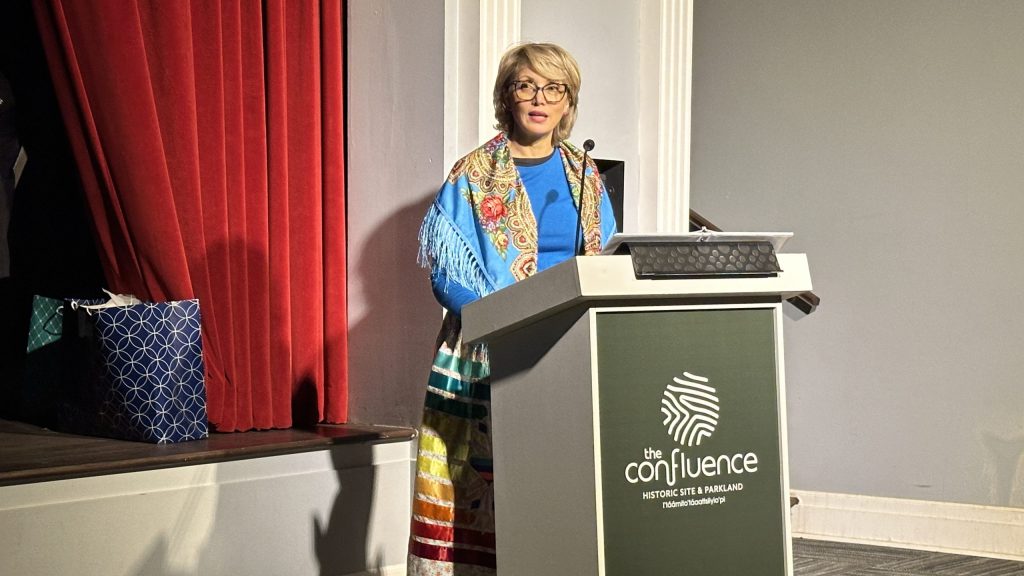Media giants pressured as advertising agencies look to social media
Posted May 7, 2014 10:18 am.
This article is more than 5 years old.
TORONTO – Executives at some of Canada’s biggest media companies say they’re feeling the pinch as major advertisers take their money to social media operators like Facebook and Twitter, leaving the country’s biggest television networks and newspapers with the scraps.
The shift is happening faster than many players expected and is a driving force behind changes across the industry as more Canadians migrate to the Internet for their news and entertainment.
On Tuesday, the CRTC released a financial report for the TV industry showing that conventional broadcasters, which send over-the-air signals, together lost more than $69 million before taxes last year.
National advertising sales took the brunt of the impact, dropping 5.3 per cent to $1.28 billion in 2013.
Today, Canada’s advertising market is about $13 billion annually, crossing all platforms including TV, radio and online, according to analysis firm Solutions Research Group.
Just a few years ago, the consensus among big media companies was that restrained spending by advertisers would evaporate after the economic downturn and usher in a new era of digital advertising where banner ads on newspaper company’s websites and streaming video commercials for multi-platform content became increasingly lucrative.
What happened was a little more complicated as social media companies swooped into the equation and outside forces like Google’s advertising division attracted a bigger chunk of marketing dollars.
“Deals are being made on a global basis,” said Jack Tomik, chief sales officer at Rogers Media, which owns a slate of television channels and magazines.
“Money is coming out of budgets for a lot of national advertisers before it even gets to this side of the border.”
Advertisers partner with social media companies partly because of their massive scope that promises specific demographics and often more favourable rates.
“More and more we’re finding that clients who are global want to do things on a global scale,” said Fred Forster, chief executive officer of Omnicom Media Group Canada, the Canadian division of the world’s biggest advertising agency.
Forster said international advertising campaigns tend to be cheaper overall.
“There are efficiencies associated with that and that’s why the deals are done,” he said.
In March, photo app maker Instagram secured a US$100-million contract with Publicis Omnicom that runs for a year, triggering widespread industry attention. Now, Instagram is shopping around monthly campaigns that cost nearly $1 million apiece, according to a report in trade magazine Ad Age.
Some Canadian media companies have tried to tap into these relationships by partnering with a direct competitor.
Postmedia websites, for example, use Google’s advertisement technology under a revenue sharing agreement with the Silicon Valley giant, which means the owner of the National Post and other dailies receive a smaller chunk of revenues but also don’t shoulder big administrative expenses.
“The technology and the number of impressions Google can drive is significant — higher than traditional media companies are able to drive,” said Postmedia chief operating officer Wayne Parrish.
Others have tried a more competitive approach. Rogers Communications (TSX:RCI.B) paid $5.2 billion in November for the Canadian broadcast rights for NHL games, an attempt to get a larger chunk of the lucrative sports entertainment market that still attracts advertisers in droves.
The landmark deal had a ripple effect at CBC, a longtime NHL broadcaster. The public broadcaster is laying off more than 600 employees over three years as it manages the impact from both the loss of NHL advertising revenue and cuts to its budget by the federal government.
Analyst Kaan Yigit at Solutions Research is skeptical about the suggestions that big media companies are suffering because of the shift to digital.
“If the argument is that some of the online spend is going to Google, Facebook, Twitter and Yahoo in Silicon Valley, that’s true. But conservatively, over 90 cents of each $1 spent in advertising in Canada stays in Canada at the moment,” he said.
TV broadcasters also benefit from simultaneous substitution, which allows Canadian cable companies to broadcast the simulcast events like the Super Bowl over of the U.S feed, which reaps extra advertising dollars, Yigit said.
“Canadian media companies are given an additional opportunity to keep the dollars in Canada via simultaneous substitution,” he said.
Last month, Keith Pelley, the president of Rogers Media, stood before the CRTC to emphasize what he characterized as a shocking foundational shift.
“The industry is not changing yearly, it is changing monthly, weekly, daily,” Pelley said. “For example, the financial projections we filed in December no longer reflect the current reality.”
Fellow media company Torstar Corp. (TSX:TS.B) is expected to tell a similar story when it reports its first-quarter financial results on Wednesday.
Torstar, which owns the Toronto Star and other community papers, announced the sale of its romance novel division Harlequin Enterprises last week for $455 million, in a move that would free up cash to pay down debt and potentially chase other business opportunities.
Torstar’s print and digital advertising revenue have been in decline, falling 9.5 per cent last year.
RBC Dominion Securities analyst Haran Posner said it’s possible that Torstar could move to consolidate the newspaper industry in the coming months.
“While evaluating merger and acquisition scenarios is inherently uncertain, we see most incumbent publishers as candidates to participate in newspaper consolidation in some way, shape or form,” he wrote.
“We believe other scenarios could include returning the excess cash to shareholders or a further break-up and privatization of the remaining Torstar.”
Note to readers: This is a corrected story. A previous version incorrectly said Google’s media ad partners are featured more prominently on Google News pages.










